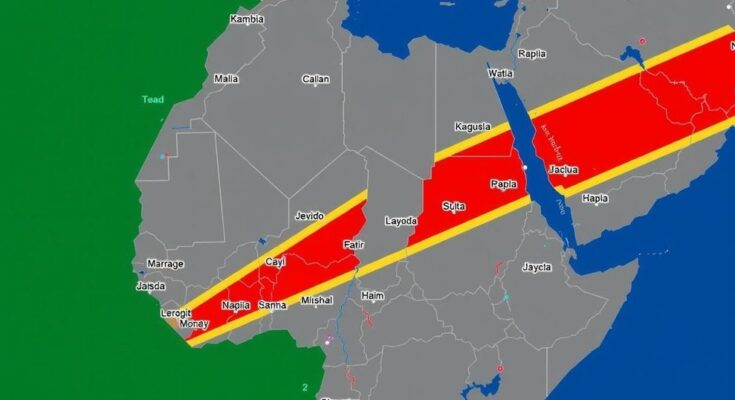Namibia’s elections have been extended due to “irregularities” including shortages of ballot papers and registration device failures. The IPC protests this but urges voter participation against the long-standing Swapo party. Vice President Nandi-Ndaitwah aims to be the first female president amidst rising youth frustration over economic issues. This scenario mirrors electoral challenges faced by other veteran parties in Southern Africa.
Namibia is experiencing significant electoral turmoil as the Electoral Commission of Namibia (ECN) has extended the presidential and parliamentary elections into the weekend due to reported “irregularities” that impaired the voting process. Polling stations initially scheduled to close two days prior are now set to remain open until Saturday night, following an admission of “logistical” failures, including a shortage of ballot papers and malfunctioning electronic registration devices that caused long waits for voters.
The opposition party, Independent Patriots for Change (IPC), which is challenging the 34-year rule of the South West Africa People’s Organization (Swapo), expressed discontent over the extension yet urged voters to fulfill their civic duty. IPC presidential candidate Panduleni Itula acknowledged the prevalence of irregularities but stressed the necessity for citizens to complete the voting process as directed by the ECN.
The political landscape in Namibia is particularly charged, as vice president Netumbo Nandi-Ndaitwah of Swapo seeks to become the nation’s first female leader. However, she faces a youthful electorate increasingly frustrated by prevailing economic disparities, despite Namibia being classified as an upper-middle-income country by the World Bank. The potential for Swapo to experience a decline in voter support parallels recent electoral challenges faced by long-standing liberation parties in Southern Africa such as Frelimo in Mozambique, which has been engulfed in unrest following accused election rigging.
Namibia’s history as a former German colony and later a territory under South African rule has shaped its current socio-political dynamics. Swapo, credited with leading Namibia to independence in 1990, has remained in power since. However, a growing discontent, particularly among the youth regarding economic inequality and lack of opportunities, is raising doubts about Swapo’s continued dominance. The situation is further complicated by worsening electoral conditions and emerging calls for political change, reflecting a larger trend seen in the region where former liberation movements face reconsideration by voters.
The electoral chaos in Namibia, marked by logistical failures and extended voting periods, reveals underlying tensions as the IPC seeks to challenge decades of Swapo governance. As opposition parties rally the youth to advocate for change, voters are left to navigate a fraught electoral landscape fraught with difficulties. The outcome of this election will not only impact Namibia but could serve as a bellwether for broader electoral dynamics in Southern Africa.
Original Source: www.aljazeera.com




